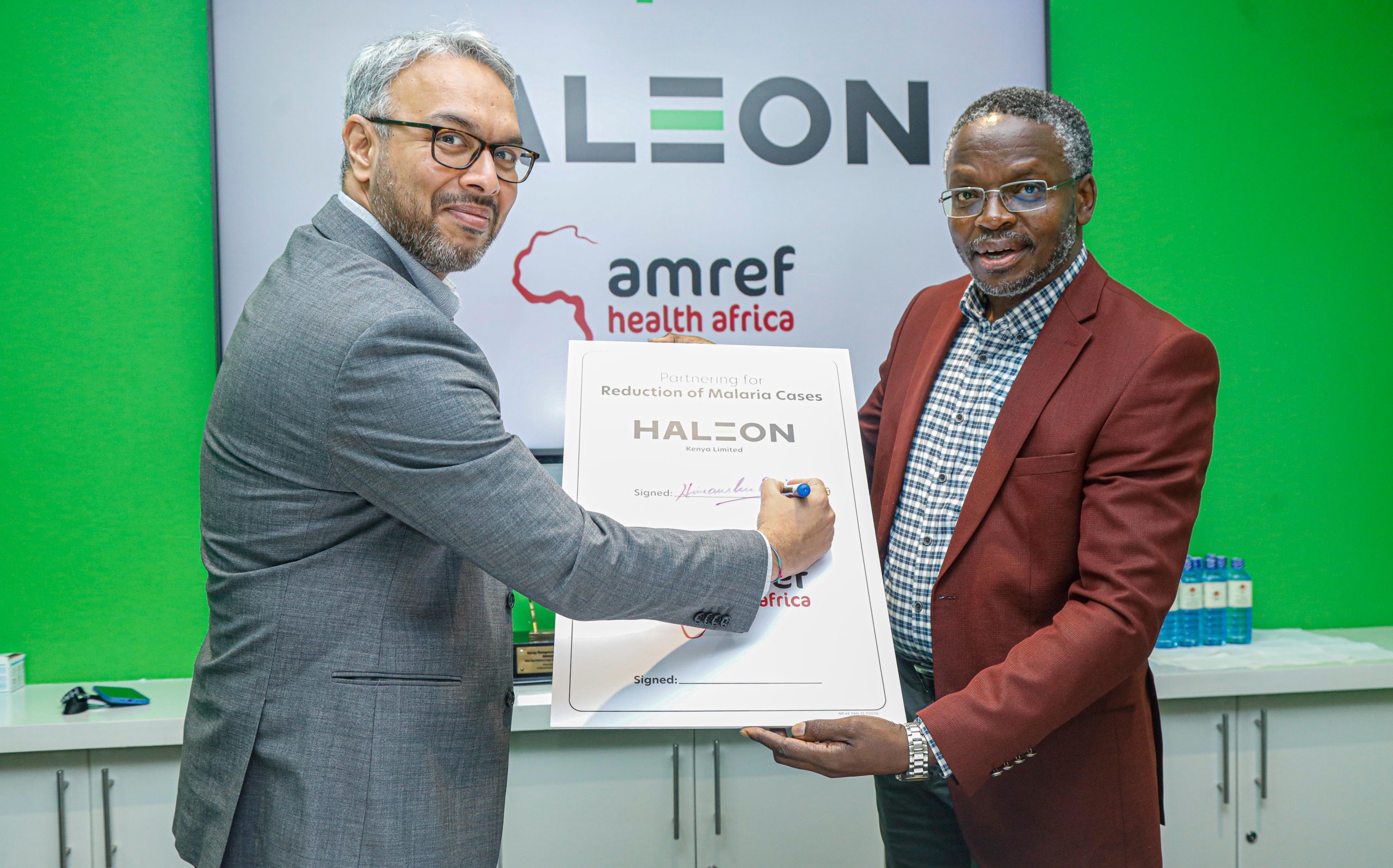By The Weekly Vision Reporter
Haleon Kenya Ltd has officially entered into a strategic partnership with Amref Health Kenya to scale up community-led interventions aimed at reducing malaria infections and deaths in Siaya County, one of Kenya’s highest-burden regions.
The collaboration seeks to reach an estimated 75,000 people, including 200 Community Health Promoters (CHPs), 30 Community Health Assistants (CHAs), 190 teachers, and more than 45,000 schoolchildren. The initiative will also strengthen local health systems by training frontline health workers and integrating malaria prevention and fever management education into schools and health facilities across the county.
Malaria remains one of Kenya’s most persistent public health challenges, with 75% of the population at risk and western counties such as Siaya, bordering Lake Victoria, recording some of the country’s highest transmission levels. According to the Ministry of Health’s 2024 Malaria Report, the country registers approximately 3.4 million new cases and over 11,000 deaths annually.
Under the new partnership, Haleon and Amref will focus on expanding access to community education, promoting fever management linked to malaria, distributing insecticide-treated mosquito nets, and training CHPs and healthcare workers to strengthen early detection and response.
Speaking during the signing ceremony, Himanshu Raj, General Manager for Haleon Sub-Saharan Africa, said the collaboration aligns with the company’s mission of improving everyday health outcomes. “This partnership with Amref reflects our purpose to deliver better everyday health with humanity by empowering communities to manage malaria and fever more effectively. Through this initiative, we are putting health in more hands,” he said.
Dr Meshack Ndirangu, Amref Health Kenya Country Director, underscored the importance of cross-sector partnerships in combating malaria. “Public–private partnerships like this are vital for achieving lasting health impact. By combining Amref’s community health expertise with Haleon’s leadership in consumer health, we are building a strong platform to reduce the malaria burden and strengthen local health systems. This collaboration directly supports our Malaria and Climate Big Bet, which aims to cut malaria cases by 90% by 2030,” he said.
The initiative reinforces Haleon’s commitment to global fever management standards, including adherence to the WHO-recommended protocol, which identifies paracetamol as a first-line treatment for malaria-related fever. The programme highlights Panadol (paracetamol) as an accessible solution for fever relief, without a commercial focus.
The partnership is also informed by findings from the Health Inclusivity Index, an international study supported by Haleon and conducted by Economist Impact. In Kenya, the Index shows that improving health literacy could generate up to USD 186 million annually if low health literacy rates were reduced by 25%. Haleon aims to translate these insights into action through its collaboration with Amref, ensuring vulnerable communities can access quality, affordable health solutions.





